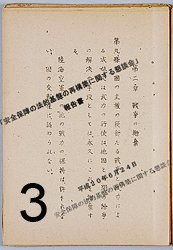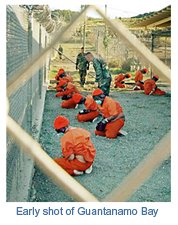(Initially published in the Japan Times, March 26, 2009)
Once again the issue of Japanese contributions to international security efforts is the subject of tortured debate. And once again the proposed government policy, and aspects of the debate itself, reveals fundamental misunderstanding of the relationship between Article 9 of the Constitution and the relevant principles of international law.
This time, the issue relates to maritime piracy off the coast of Somalia, and the proposed deployment of Japanese naval vessels to the area. Predictably, the issue has triggered debate over the effect of the war-renouncing provision of the Constitution. A careful analysis, however, would suggest that the Article 9 prohibition on the use of force would not apply to the deployment of naval forces, or their use of weapons, to protect shipping from pirates in international waters.
Yet, it is clear that the government policy is being formulated under the shadow of Article 9. While the ships are initially being deployed under the authority of Article 82 of the Self-Defense Forces Law, the government has drafted and submitted to the Diet a permanent anti-piracy law, and it is around this bill that debate has focused.

 full, this posting is less a summary and more a full report on the substance of this part of the report. There is much to criticize here, but the analysis is left for the fourth and final posting on the report.
full, this posting is less a summary and more a full report on the substance of this part of the report. There is much to criticize here, but the analysis is left for the fourth and final posting on the report.